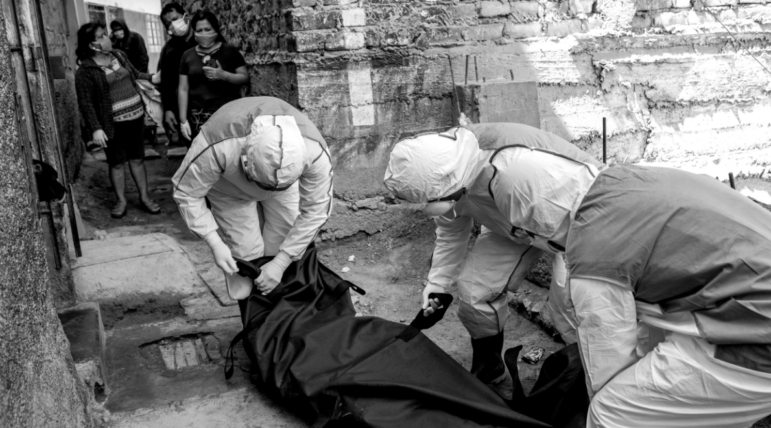
Case Studies
Lessons Learned from Exposing Child Sex Trafficking Online
A reporting team provides the backstory of the Guardian’s years-long investigation into the world of online child sex trafficking.

A reporting team provides the backstory of the Guardian’s years-long investigation into the world of online child sex trafficking.

Around the world, official death tolls from the pandemic have been compromised by data lags, lack of testing, and sometimes deliberate distortions, leading to significant undercounts. In response, investigative reporters are using new tools and creative approaches to provide a clearer picture of direct and indirect deaths associated with the pandemic, and to hold governments accountable for inadequate responses.

This week’s Friday 5, where we round up our favorite reads from around the online world in English, includes Meduza’s report on Russian editor Roman Badanin’s Pulitzer-charged rant against The New York Times, ProPublica’s sober response to the “Plandemic” viral video, and Poynter’s point about an ethics policy that includes guidelines for pre-publication source review.

This week’s Friday 5, where we round up our favorite reads from around the online world in English each week, includes the backstory to Ukraine’s YanukovychLeaks, how journalists around the world are using defamation laws to protect themselves against online harassment, and a new free tool that could help journalists spot doctored photographs.

Investigative reporters have a bit of a reputation for being troublemakers — both outside and inside their newsrooms. Sometimes, this can get in the way of their work. In his new book “Investigative Journalism: A Survival Guide,” David Leigh gives sensible advice for those who wish to not only get along with their bosses, but to see their stories published.

The Guardian has re-built its business around membership, and last year it appointed its executive editor for membership, Lee Glendinning, who formerly led the Guardian US. She explains how she uses her role to experiment and test new approaches.
The ability to protect journalism sources in the digital age is rapidly deteriorating. Those are the conclusions of an important new study recently released by UNESCO. GIJN has excerpted key portions here, drawn from extensive research and interviews with investigative reporters, editors, legal experts and freedom of expression specialists from 17 countries.

De Correspondent, a Dutch member-funded journalism platform, leverages on the shared knowledge and experience of their 55,000 paying members as much as possible in their reporting. Here’s their 3-step workflow incorporating reader engagement, which helped them land their scoop on Shell.